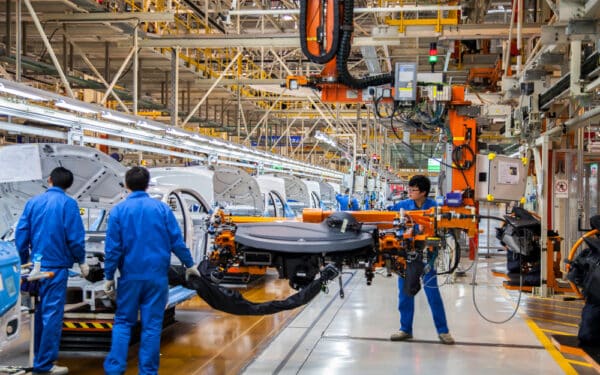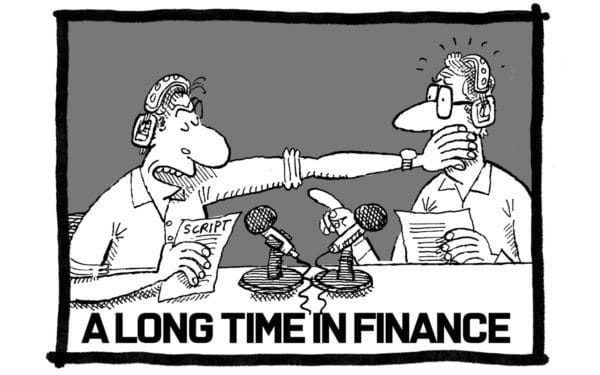So, farewell then, Dungeness B. Its French owners finally threw in the nuclear towel this week, admitting that after spending £200m finding out, the power station is just too expensive to fix. Thus another miserable chapter in the story of Britain‘s adventure in nuclear generation draws to a close, at least as far as output is concerned. The workforce will be engaged for years trying to dismantle it safely.
The Advanced Gas-Cooled reactor (AGR) at Dungeness was hailed as a British triumph 55 years ago when Fred Lee, the Minister of Power, told Parliament “we have hit the jackpot this time.” It is only 35 years since the subsequent financial disaster was chronicled brilliantly by Walter Patterson in a pamphlet called “Going critical.” Readers today would not know whether to laugh or cry, as the latest version of a world-beating design rises like an incubus on the Somerset coast.
It may be possible to build a nuclear power station to time and at an affordable cost, but neither the British nor the French (at Hinkley Point) have yet worked out how to do it. This matters quite a lot. Covering the English countryside and all possible offshore locations with windmills will not get the UK even close to carbon neutrality by 2050. Without oil and gas, only nuclear power can possibly fuel the Brave New Green World.
The problem is as much one of perception as cost. Nuclear power is astonishingly safe. Even when the Fukushima plant in Japan was overwhelmed by the tsunami, only three people suffered high levels of radiation. Yet the regulators in the UK keep raising the safety bar, adding to the cost and complexity of plant design. At present, rising safety costs are outpacing design improvements.
As usual, the UK is tempted to put public money into fanciful solutions. The latest grand plan is for mini-nukes (coming to a site near you) perhaps building on Rolls-Royce’s (experience with nuclear-powered submarines. Rolls’ new chairman is confronted with a balance sheet choked with debt and a business case in vendor finance that Covid has destroyed. She might well conclude that playing with terrestrial nukes is a gamble too far.
Whether or not the minis can be made to work, the legal obligations self-imposed by the Climate Change Act 2008 are practically impossible to meet, almost regardless of how much money is thrown at fossil-fuel alternatives. If wishing could make it so, the government might just as well legislate for continuous sunshine in May – starting in 2050.
Gasping for a fag
Shares in BATS got a little cheaper this week, even though the price barely twitched. With the sort of upbeat statement that would have reassured shareholders in, say, Unilever, CEO Jack Bowles went on about “creating brands of the future and sustainable value for all our stakeholders” before concluding: “The momentum across the business is strong, and I am excited about the future for BAT.”
The missing word in his statement was “tobacco”. This missing word is why the shares are getting steadily cheaper. Tobacco is a truly resilient business, with BAT’s sales expected to rise by 5 per cent this year, while the yield at £28.50 a share on the last four quarterly dividends is 7.8 per cent. The next payments are not expected to go down.
The problem, of course, is that fund managers everywhere – aside from the trackers, who have a convenient excuse – find that it’s just too much trouble to explain why they should hold tobacco shares. It’s so much easier to cross the industry off the list, or if the terrible weed is there in a freshly-managed portfolio, to simply dump the stock. This approach has allowed a polystyrene cup baron called Kenneth Dart to build up a stake of 6.6 per cent without anyone noticing.
We don’t know what he expects, since he has not talked publicly to the press since 1993, but perhaps he has noticed a remarkable market anomaly. The fashion-conscious fund manager may eschew the shares, but the bond market is still smoking. Last September, for example, BAT raised $1bn for 30 years, paying 3.984 per cent. As the analysts at Ash Park group pointed out recently, since us shareholders seem so ungrateful for the dividends, why not spend the same money buying in the shares instead? At today’s price, that would buy the entire company in nine years. Long before then, Mr Dart might find himself the owner of one of the finest cash-generating businesses on the planet.
Are you incandescent or just cross?
The UK government is fiddling with the light switch again. This time, it’s off with those flickering compact fluorescent lights (CFL) and time to turn on the light emitting diodes (LED). Governments of various hues have form interfering in the light bulb business. In what was spun as a way to save electricity and thus the planet, the old incandescent bulbs were outlawed from 2007 in favour of the slow to light, twisted strip light that is the CFL. Never mind that the old ones cost pennies apiece, while the new ones cost pounds, chancellor Gordon Brown could polish his greenery.
This little triumph has cost consumers perhaps £2.75bn, and it turns out that the money has been entirely wasted. LEDs were about to displace the old bulbs anyway, while the hated CFLs never lasted as long as the makers claimed. Today, LEDs have two-thirds of the market, and would have displaced everything else as the technology advanced. Virtue-signalling at maximum luminescence, DEFRA is now banning halogen bulbs and the CFLs it forced us to buy last time, trying to take credit for something that is happening anyway. Easier than dealing with real problems, of course.





